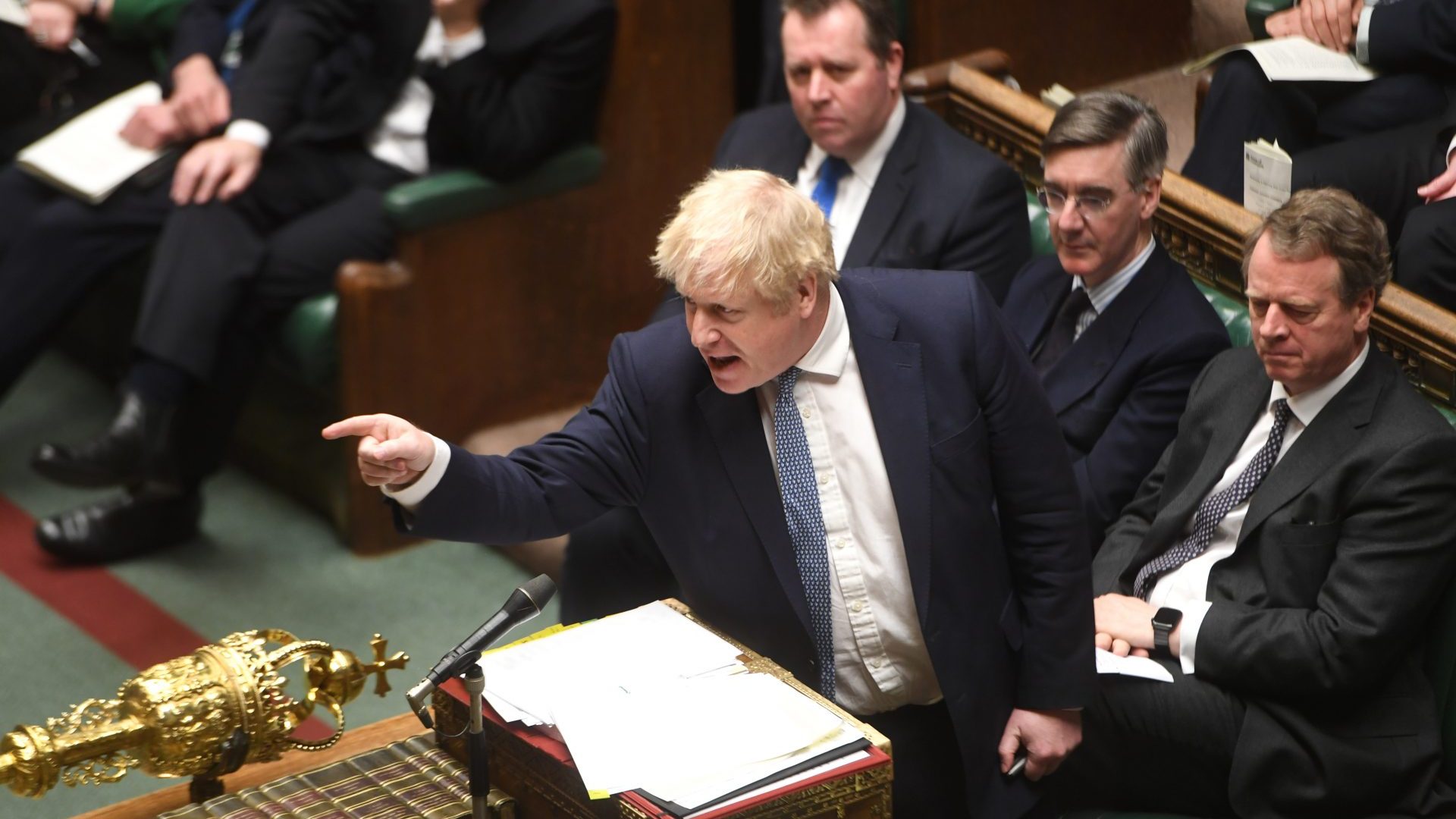For Mark Twain there were three kinds of lies: lies, damned lies and statistics. As the UK crawls into the Year of the Tiger, it would seem that while Prime Minister Boris Johnson’s repeated assertion that the country is the “fastest growing” in the G7 does not belong in the first two categories, it certainly chimes with another of Twain’s aphorisms: “Facts are stubborn things but statistics are pliable.”
Yes, the UK economy was the fastest growing in the G7 major economies, which also includes the United States, Canada, Italy, Germany, France, and Japan, when you measure year-on-year Gross Domestic Product growth (total output) from the third quarter of 2020 to the third quarter of 2021.
The UK economy grew 6.8%, followed by the US (4.9%), Canada (4%), Italy (3.9%), France (3.3%), Germany (2.6%), and Japan (1.1%).
However, if you look at growth from the second quarter of 2021 to the third quarter of 2021, the UK slips to fifth position with just 1.1% growth. France is top in this category with 3%, followed by Italy (2.6%), Germany (1.7%), Canada (1.3%). Below the UK, the US had 0.6% growth while Japan’s economy contracted by 0.9%.
Widen the lens again to measure growth from the beginning of the pandemic (from the fourth quarter of 2019 to the third quarter of 2021) and the picture is much bleaker with the UK in sixth place with a contraction of 1.5%. Over the same period, the US registered growth of 1.4%, followed by France (-0.1%), Germany (-1.1%), Italy (-1.3%), Canada (-1.4%), with the UK and Japan (-1.9%) bringing up the rear.
There is another caveat to note: The fact-checking site Full Fact notes that headline GDP growth across countries is not 100% comparable during the pandemic, with UK growth relatively lower in 2020 and higher in 2021 because of differences in how output in the education and health sectors are calculated.
So Johnson’s oft-repeated claim that the UK is the fastest growing economy in the G7 is only partly correct. Perhaps in the same way that a party is not always a party.
It’s also important to place these varying figures in context by tracking back to see where things stood before the extraordinary upheaval of the pandemic. In 2019, the UK’s GDP grew a moderate 1.4%, flat-lining in the final three months of the year as uncertainties over Brexit weighed down a country already battered by a decade of austerity.
When Covid struck and we were forced into lockdown, the economy took a hammering, falling almost 20% in the three months to June 2020, the biggest contraction in 300 years. Then came a bounce back with GDP growing 17.4% in the third quarter. But that still didn’t make up for that initial slump.
In fact, although the economy grew faster than originally thought in the final three months of that year, it still ended up falling by 9.8% from 2019. That was the biggest drop of all 38 countries in the Organisation for Economic Co-operation and Development (OECD) – except for Argentina and Spain.
Are things getting better now? For sure.
In November last year, the economy – the world’s fifth-largest – grew by 0.9%, leaving it 0.7% bigger than it was in February 2020. So we have clambered back up to where we were, albeit slower than some other economies, like the US. And don’t forget this was before Omicron really took off, meaning that growth could take another hit over December and January.
In new forecasts published on January 25, the International Monetary Fund lowered its 2022 GDP forecast for the UK to 4.7% from a prediction of 5% made in October, citing concerns about disruption from Omicron, labour shortages and high energy prices. It raised its forecast for 2023 to 2.3% from 1.9% in October.
To be fair, forecasts were also lowered for the US, China and the Euro area, and this was blamed on uncertainty about the pandemic, inflation, supply disruptions and possible interest rate rises in the US.
Even with higher growth next year, it’s also the case that a rising tide does not lift all boats; the IMF’s deputy managing director Gita Gopinath said the government should consider offering “well-targeted” financial support to vulnerable households faced with a surge in the cost of living, especially given that inflation is running at a near 30-year high.
One of the biggest challenges for cash-strapped households will be the expected rise in the energy price cap in April, which could lead to a 50% increase in fuel bills. Fuel prices could also rise because of the risk of conflict between Russia and Ukraine. Thankfully, Johnson is fully engaged with helping prevent such an event, at least when he’s not having to postpone calls with Russian President Vladimir Putin to run to the House of Commons and bat away repeated calls to resign.
So to sum up, the UK economy crashed during 2020 and is slowly regaining its feet although the recovery really only looks impressive because the initial fall was so dramatic. However, GDP growth does not mean everyone is better off and the most vulnerable households will be hit hardest by the cost of living surge and the 1.25 percentage point increase in national insurance contributions in April, needed, we are told, to tackle backlogs in the NHS and to reform social care.
Johnson and Chancellor Rishi Sunak recently wrote in The Sunday Times that there is no “magic money tree” and that is why national insurance must rise. This kind of sober assessment is a long way from the tub-thumping boasterism that says the UK has the fastest growing economy in the G7.
Statistics are pliable, and the ones a prime minister chooses to highlight might also have less to do with a search for clarity and more to do with a sordid push for political survival.











